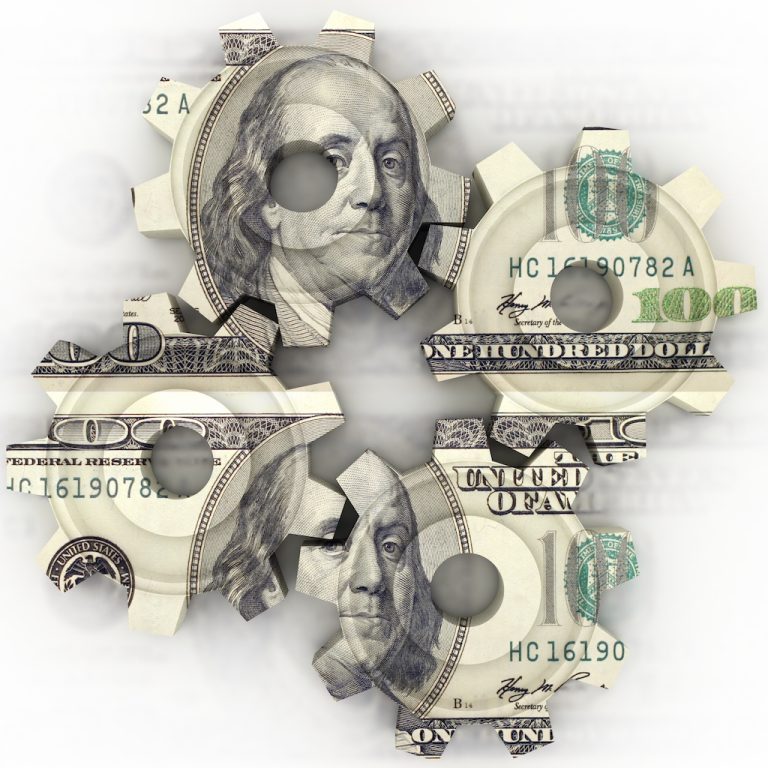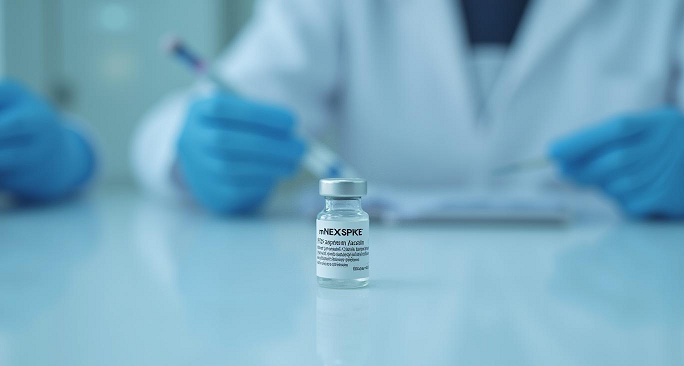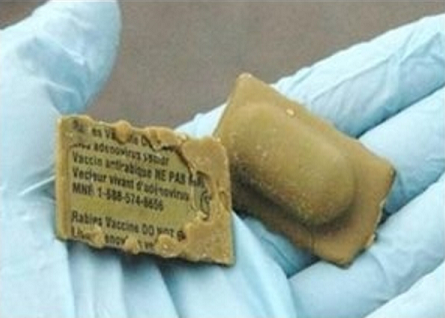Public interest nonprofit organizations U.S. Right to Know and Public Citizen have petitioned the Centers for Disease Control and Prevention (CDC) to stop issuing false disclaimers that it “does not accept commercial support” and has “no financial interests or other relationships with the manufacturers of commercial products.”1
The CDC consistently publishes the following disclaimer throughout its website:
CDC, our planners, content experts, and their spouses/partners wish to disclose they have no financial interests or other relationships with the manufacturers of commercial products, suppliers of commercial services, or commercial supporters.2 3 4 5
According to U.S. Right to Know and Public Citizen, “The CDC makes such disclaimers hundreds of times in its publication and on its website despite that the National Foundation for the Centers for Disease Control and Prevention has accepted for it nearly $80 million from drug companies and other commercial manufacturers during fiscal years 2014-2018.”1
The petition by these groups states: “These claims may be comforting to consumers and health professionals, but both are indisputably false.”1
Several groups have endorsed the petition, including Knowledge Ecology International, Liberty Coalition, Project on Government Oversight, Public Citizen and U.S. Right to Know.1
“That the CDC accepts millions from corporations directly impacted by the agency’s public health programs is indefensible,” said Michael Carome, MD, who is director of Public Citizen’s Health Research Group. “So the CDC instead has adopted the strategy of repeatedly denying that it accepts such payments.”1
Gary Ruskin, co-director of U.S. Right to Know, urged the CDC to be “truthful with health professionals and all Americans, and to stop denying that it takes corporate money.”1
A 2015 article in the British medical journal The BMJ by Jeanne Lenzer highlighted that pharmaceutical firms and other kinds of companies fund CDC projects via the CDC Foundation.6
An article in The Vaccine Reaction noted that the CDC’s director at the time Thomas Frieden, MD said he was unconcerned about CDC financial ties to industry because it allowed the CDC to do more work at a faster pace. But this attitude has been a concern to watchdog groups because they believe it “undermines and delegitimizes the authority and reputation of a highly influential public health agency that should be free of conflicts of interest—real or perceived.”6
References:
1 Press Release. Groups to CDC: Stop Falsely Claiming Not to Accept Corporate Money U.S. Right to Know Nov. 5, 2019.
2 Centers for Disease Control and Prevention. CE Instructions for WB4095: Immunization: You Call the Shots-Module One-General Best Practice Guidelines for Immunization-2019 CDC.gov
3 CDC. Crisis and Emergency Risk Communication (CERC) Online Training. CDC.gov Jan. 23, 2018.
4 CDC. Myths of Radiation: Communicating in Radiation Emergencies – Myth. CDC.gov Apr. 4, 2018.
5 CDC. Watch Me! Celebrating Milestones and Sharing Concerns. CDC.gov Sept. 2, 2019.
6 TVR Staff. CDC Foundation Ties to Industry Raise Conflict of Interest Concerns. The Vaccine Reaction June 28, 2015.













10 Responses
It’ not only money from corporations and lets just say what those corporations represent-The Pahrmetutitical Induty nd all entities attacjed to it. what needs to be revealed to the public is the revolving door between the government agencies and pharma:
“Regarding corruption surrounding the recommendation of influenza vaccines; there are no restrictions with regard to conflicts of interest for the employees of the CDC or for those of the FDA (Kuehn, 2010). Each employee of either agency is allowed to own stock in drug companies. There is of course the revolving door. The most blatant example of revolving door corruption may be the action of the former director of the CDC, Julie Gerberding. Gererding blocked the CDC’s planned retraction of their recommendation for HPV vaccine after significant numbers of girls had died or been rendered paralyzed by the HPV vaccine. Soon after blocking the retraction, Gerberding was offered and took a position at Merck, the manufacturer of Gardasil, the world’s best selling HPV vaccine, as head of Merck Vaccines Department (Reuters, 2009). It is a level of corruption that we would expect to see in only third world countries.” ( Kuehn, B. (Feb 3, 2010). Office of Inspector General: CDC Lax in Policing Advisors’ Conflicts of Interest. The Journal of the American Medical Association303. 5 412)
Greenmed blog
-Former CDC head lands vaccine job at Merck
https://www.reuters.com/article/us-merck-gerberding/former-cdc-head-lands-vaccine-job-at-merck-idUSTRE5BK2K520091221
-From FDA expert to biotech insider: The drug industry thrives on the revolving door
https://www.statnews.com/2016/09/27/fda-biopharama-revolving-door-study/
-Is the CDC Sleeping With Drug Companies? You Decide…
https://www.circleofdocs.com/is-the-cdc-is-sleeping-with-drug-companies-you-decide/
It’s stunning how well know this activity is yet-pro-vaxxers are completely ignorant of it.
“I didn’t cheat on my diet except for the ice-cream sandwiches, chocolate bars and chips and pop that made up 30% of my daily intake….. And it’s okay because dairy is healthy for you, chocolate is an antioxidant, potatoes are a vegetable and it was diet pop. “
CDC Members Own More Than 50 Patents Connected to Vaccinations
The CDC Immunization Safety Office is responsible for investigating the safety and effectiveness of all new vaccinations; once an investigation is considered complete, a recommendation is then made to the CDC’s Advisory Committee on Immunization Practices (ACIP) who then determines whether the new vaccine will be added to the current vaccination schedule. Members of the ACIP committee include physicians such as Dr. Paul Offit, who also serves as the chief of infectious diseases at the Children’s Hospital of Philadelphia. Offit and other CDC members own numerous patents associated with vaccinations and regularly receive funding for their research work from the very same pharmaceutical companies who manufacturer vaccinations which are ultimately sold to the public. This situation creates an obvious conflict of interest, as members of the ACIP committee benefit financially every time a new vaccination is released to the market.
Members of the ACIP Committee Directly Influence Public Health
Each of the 12 members of the CDC’s ACIP Committee has a significant influence on the health of nearly every member of the American population. Because they are responsible for adding to and/or altering the national vaccine schedule, it is of critical importance that they remain objective and unbiased before determining whether a new vaccination is appropriate for use, particularly in the bodies of vulnerable young children. Unfortunately, a significant number of ACIP committee members receive direct financial returns when more vaccinations are added to the current schedule. Many own vaccination related patent(s) and/or stock shares of the pharmaceutical companies responsible for supplying new vaccines to the public. Others receive research grant money, funding for their academic departments, or payments for the oversight of vaccine safety trials.
https://www.lawfirms.com/resources/environment/environment-health/cdc-members-own-more-50-patents-connected-vaccinations
Using “CDC” and “truthful” in the same sentence just doesn’t cut it…
Don’t they also hold patents on some vaccines?? That would seem like a conflict of interest.
Frieden is right: the pharmaceutical company money does help them get their work done faster, only their work has silently morphed into the work of big pharma, not the work of public health. Frieden swallowed the kool-aid that makes you believe that you can make a deal with the devil and not have to pay for it.
Money talks and everyone else “just get get your damn shots”
Robert F Kennedy Jr.
They “wish to disclose” they have no financial ties is legally true- since wishes aren’t horses, so can’t be sold.
Impossible!
CDC was originally based upon such templates of funding from Big Pharma, and that’s the only way they can operate.
Lies & Deception rule!